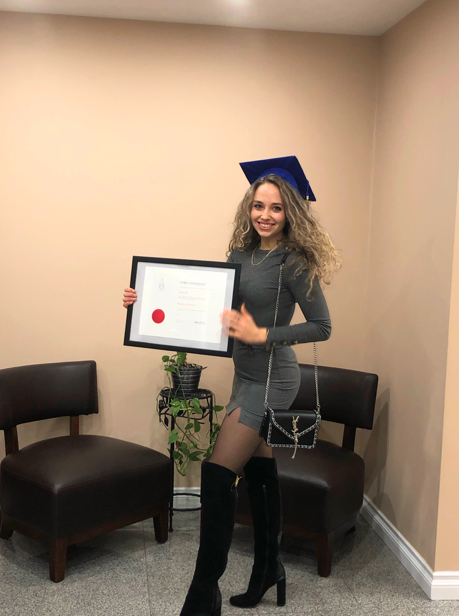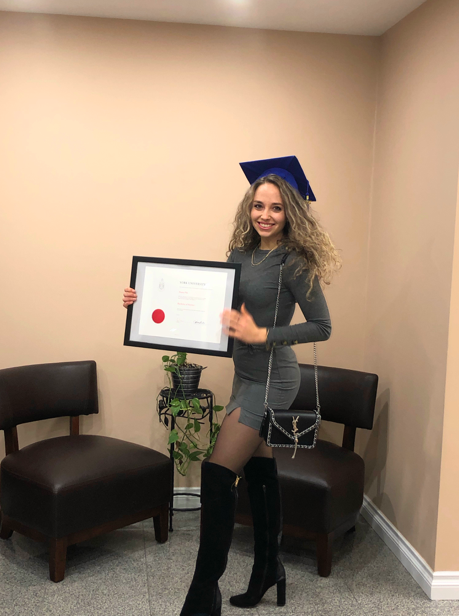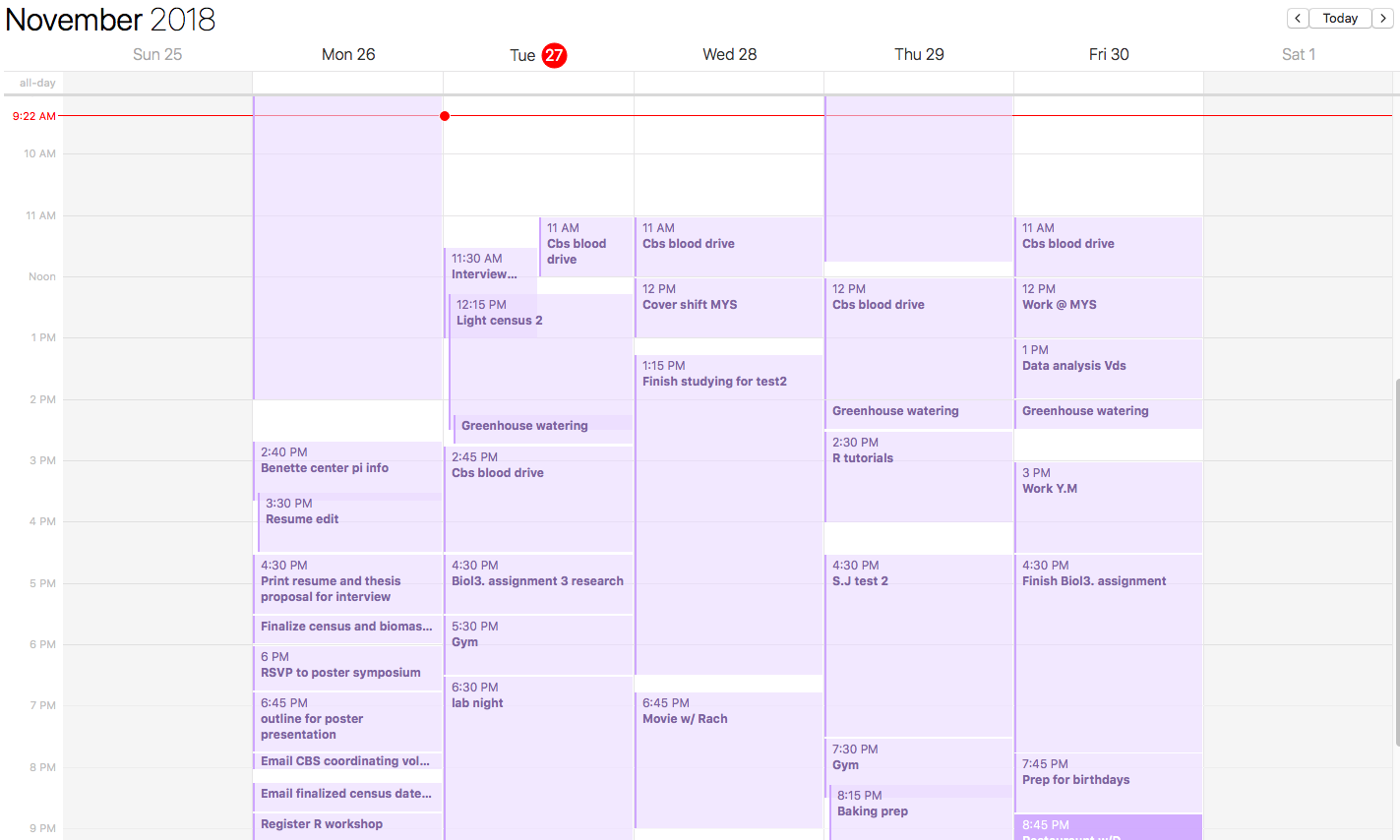This October, I graduated from university with a Bachelor of Science in Biology and an Honors Thesis in Restoration Ecology. Throughout my university experience, I paid entirely out of pocket for my studies, materials, and supplementary expenses. I did not use any financial aid programs and independently funded my entire education.
I won’t sugar coat it – paying for school is not easy. But, just like exercising, the most difficult workout sessions prepare us for life and force us to develop habits that ensure future success. Covering my own fees throughout university and paying for my education taught me many crucial life lessons. This wasn’t simple, but I did it, and so can you. Although there are many important points to know and figure out ahead of time when paying for your own education, I’ve used lessons I learned from my own experience to outline 5 major pieces of advice that will help you pay for school and graduate without any debt.
- Pursue Entrance Scholarships
University is a big jump from high school. With a greater sense of freedom and autonomy also comes responsibilities. While you are in high school, a more student-focused education and smaller classes can provide you ample opportunities to speak to teachers and gain advice on how to improve your work. Although they do not in any form determine your worth, increasing your grades can gain you a wide variety of automatic entrance scholarships. Look up universities or colleges that you are interested in and search up their entrance scholarship eligibility. Often times scholarship eligibility starts at around an 80% average and can cover hundreds to thousands of dollars worth of tuition. Similarly to entrance scholarships, there are numerous scholarships available for a vast array of interests, backgrounds, and talents. Whether you are on a sports team, an entrepreneur, a musician, or anything else you may identify with, scholarships and bursaries can assist you with getting through school. Make sure to apply before the deadline.
2. Time budgets
Last year, during my final year of school, I was conducting a thesis, taking classes, running two of the largest clubs on campus, working a part-time job, starting a culinary Instagram page, working out regularly (to balance out all of the baking), and still making time to spend with my friends. Someone asked me how I have time for it all, so I decided to make this post. Here, I discussed time budgets, what they are, and how I utilize them to maximize efficiency and productivity in my tasks and responsibilities. I thrive off of time budgets and utilize them every single day. To summarize, I schedule absolutely everything I do and give myself a budgeted amount of time to complete it. This way I can have back to back tasks without worrying about forgetting something or not having enough time to complete it. I highly recommend this article to anyone who struggles with time management, as my schedule is my personal magnum opus, and has given me the ability to take on an extensive amount of opportunities.
3. Explore a Variety of Hobbies
Similar to point 2, balancing a variety of different hobbies or interests can allow us to increase how much we accomplish. A recent study by the BBC discussed how multiple of the most brilliant polymaths display interest and participate in a variety of different fields. The article discusses new research which suggests that having diverse interests yields greater productivity, creativity, and overall life satisfaction (Robson, 2019). Undertaking multiple ventures, including working a job while studying, brings in separate responsibilities and tasks into your life. In turn, this can provide a method of continuing productivity when you overwork and start experiencing diminishing returns within one subject by transferring your attention to the next.
4. Commuting VS. Campus Life
Although living on campus has ample perks such as being close to your classes and allowing for time to socialize, it can definitely add more to your tuition. When you are looking into post-secondary education, make sure to explore your options for living arrangements. Living on campus in a dorm adds expenses such as meal plans but reduces your transportation fees. On the other hand, if you live close enough to your school of choice, commuting can save you thousands of dollars, while reducing your time to socialize. To ensure that I could afford school, I commuted daily. I won’t lie to you and say it was always great, commuting on public transit was at times difficult, especially in inclement weather, but it absolutely helped me afford tuition.
5. Choose Your Jobs Effectively
I worked multiple jobs throughout my undergrad. With the rising cost of tuition, students sometimes need to take on several opportunities to afford to put themselves through school. For this reason, I highly suggest developing skills and gaining experience throughout highschool through co-op positions and volunteering to be eligible for positions that can benefit you as well. It can be strenuous to support yourself on a minimum wage, so make sure that you are applying for jobs that you can support yourself on, have room for growth, or will provide you with highly valuable experience that you can utilize and apply later in life. I ensured that each job I took on made sense with my schedule but also helped me to develop work and life skills. Similarly, you may want to consider having a part-time job in high school. I have been working since I was 16, and have since gained experience in a wide array of fields such as by working as a stylist, an early childhood assistant, a lab assistant, and more. Each and every one of these experiences has advanced me on my journey and assisted me with self-growth, taught me critical workplace and life skills, and has guided me in paying for my education. As well, I have gained life long friends from these jobs.
By following these steps and budgeting my finances, I managed to graduate completely debt-free. Through full-time jobs in the summer and part-time positions working 15 – 20 hours per week during my semesters, I got through school. I budgeted my time, my finances, and made sure to prioritize my health and well being above it all. School, especially during exams, can be busy and exhausting, so ensure that you are your top priority and that you are making time for self-care. I managed to get myself through school and I am proud of it and you can too!





